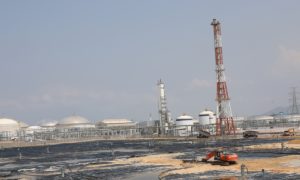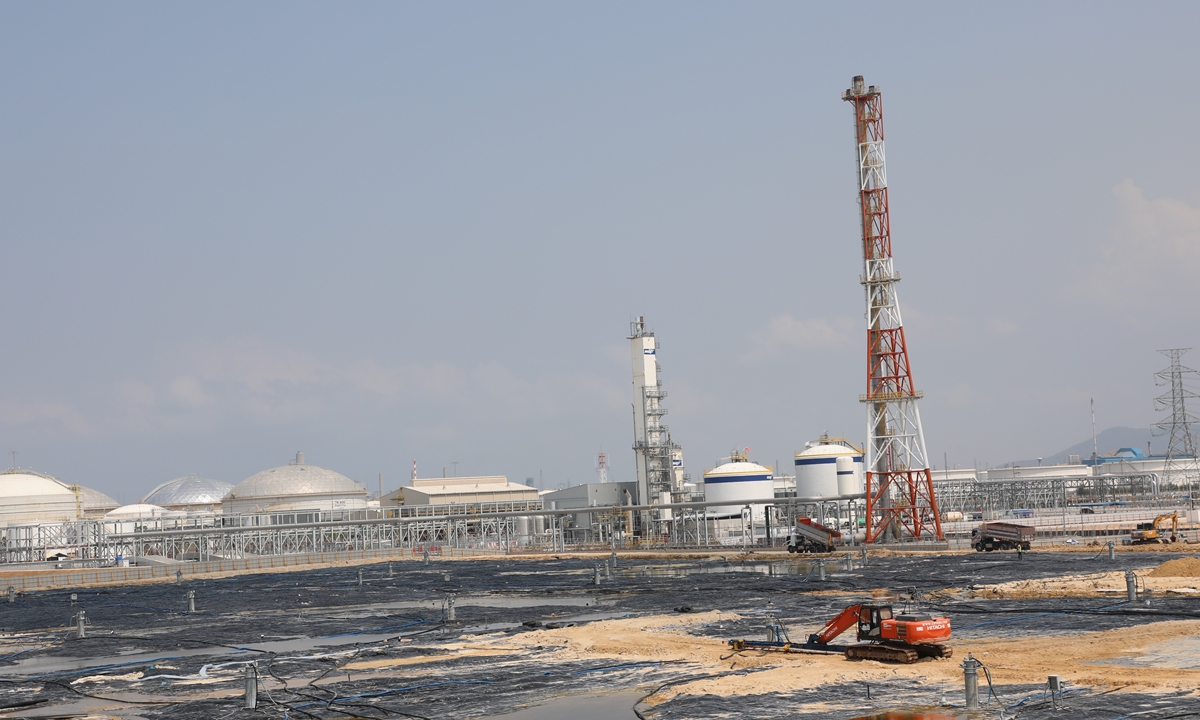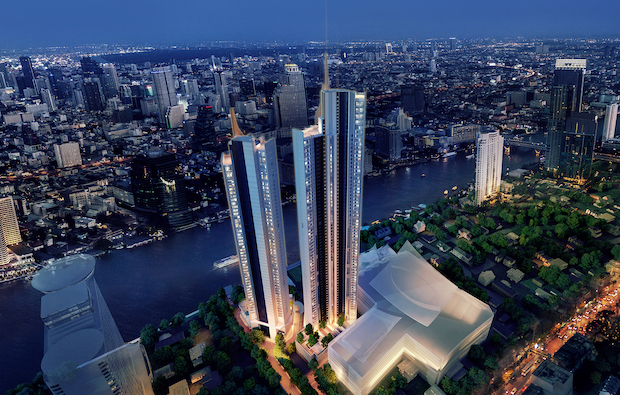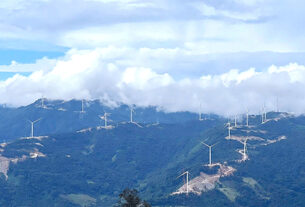
Chinese companies help build global green models as part of Thai energy projects
The construction site of Thailand’s seventh natural gas processing plant and interconnection pipeline project in the Map Ta Phut Industrial Estate Photo: Sun Guangyong
Chinese companies are playing more important role in investing in Thailand, and are building global green models as part of Thai energy projects.
A Chinese company is undertaking the construction of Thailand’s seventh natural gas processing plant and interconnection pipeline project in the Map Ta Phut Industrial Estate. The project is the largest engineering project contracted by a Chinese-funded enterprise in Thailand, the Global Times has learned.
With an investment of $500 million, the project, which is built by a Chinese company named China Petroleum Pipeline Bureau Engineering Co, will provide about 18 percent of the natural gas supply in the Thailand. Due to the urgent need for energy, the construction period of the project has been set at an ambitious 27 months.
According to the plan, Thailand’s seventh natural gas processing plant is used to replace the first natural gas processing plant that has been in service for 30 years. It will receive raw gas from the offshore gas field of Thailand’s national oil company, and recover hydrocarbon by-products, then produce clean natural gas that can be sold, and will be transported back to the existing natural gas processing plant through the newly built pipeline and incorporated into the national natural gas supply network.
The Map Ta Phut Industrial Estate is a benchmark industrial park established in the 1980s when Thailand’s economy was developing rapidly. In 1989, the Thai government decided to establish an industrial zone away from the capital city Bangkok.
With the discovery of natural gas in the Gulf of Thailand, the park has rapidly developed into a port-side processing area for the oil and gas chemical industry. The Thai government has also accelerated surrounding construction, making it the first important industrial base far away from the capital.
The park has plants operated by companies such as Dow Chemical, ExxonMobil and Bayer, and the seventh natural gas processing plant will also be built in the area.
At present, Thai National Petroleum Corporation has operated six natural gas processing plants in the park, undertaking all natural gas purification and post-processing operations in Thailand.
“The seventh natural gas processing plant has created a number of world firsts, including the world’s first use of LNG cold energy to achieve ‘ethane recovery & rectification, according to Wang Guochen, project manager of Thailand’s seventh natural gas processing plant of China Petroleum Pipeline Bureau Engineering Co.
“The plant is equipped with a number of environmental protection facilities such as waste flue gas destocking, acid gas desulfurization, zero emissions and sewage treatment. It will not only drive Thailand’s economic development, but also promote the concept of sustainable development by using the most advanced environmental protection technology, said Mi Jinpeng, executive project manager of the project.
The seventh natural gas processing plant in Thailand will be the first large-scale natural gas processing plant with ethane recovery function built by a Chinese company overseas. After completion, the natural gas processing capacity will account for 18 percent of Thailand’s entire natural gas production capacity.
The eastern part of the project has been regarded as a key industrial base for the country, and has become a regionally recognized industrial base for petrochemical, automobile assembly and electronics industries. In 2016, the Thai government proposed the development vision of “Thailand Industry 4.0” and the Eastern Economic Corridor plan.
According to the plan, the Eastern Economic Corridor will focus on industries, such as advanced auto assembly, smart electronics industry, high-end tourism and health tourism, agriculture and biotechnology and food processing.
According to data from a Thai official, 31 foreign-funded enterprises have invested in the corridor during the first quarter of 2023, accounting for 18 percent of the total number of foreign-funded enterprises, with an investment amount of 3.2 billion baht ($93.98 million), accounting for 10 percent of the total amount, the investors are mainly from China and Japan with business scopes covering automobiles and engineering.
China has been Thailand’s largest trading partner for 10 consecutive years. In 2022, the trade volume between the two countries exceeded $135 billion, and China’s investment in Thailand reached $1.4 billion, making it Thailand’s largest source of foreign investment.
Source: https://www.globaltimes.cn/page/202305/1290046.shtml


